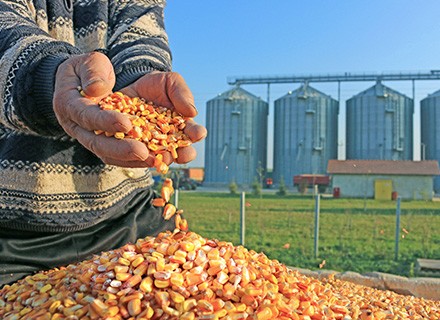An inflationary shock is still raging through boardrooms, finance ministries, and households six months after Russian tanks swept into Ukraine. But prices have returned to normal in one key area. Grain, cereal, and oil prices have reverted to pre-war levels, which are staples of diets all across the world.
Until recently, the world’s largest and fifth-largest exporters of wheat, as well as the two greatest exporters of sunflower oil, were Russia and Ukraine. Both countries are agricultural powerhouses. Therefore, it was not surprising that food prices rose in February and March as a result of worries that the war would hamper exports. In fact, the concern was that shortages would endure, decimating grain reserves and leading to widespread hunger.
Now, it seems as though that awful result was avoided. Wheat futures in Chicago for December delivery fell this week to USD 7.70 per bushel, down significantly from the USD 12.79 high they had reached three months earlier and back to where they had been in February.
The cost of corn has returned to its pre-war level. In the meantime, the price of palm oil, which is used in countless recipes from ice cream to instant noodles, has plunged below.
Only a small portion of the shift can be attributed to the recent United Nations-mediated agreement that permits Ukrainian grain exports to leave the port of Odessa because it was reached in late July.
According to the American Department of Agriculture, Russian farmers won’t be interrupted and will export a record 38 million tonnes in 2022–23—about 2 million tonnes more than they did the year before. Due in part to favorable weather earlier in the year, a big harvest is currently under progress, and typical importers in North Africa, the Middle East, and Asia are in high demand.
It’s possible that initial shortage fears were exaggerated. At the time, Charles Robertson of Renaissance Capital, an investment firm, suggested that grain traders were overexcited and had mixed up less likely lengthy disruptions to the food supply with long-term disruptions to the oil and gas supply.
The volatility may also be explained by the enormous amount of speculation taking place in futures markets. According to Michael Greenberger of the University of Maryland, who was once a division director at the regulator Commodity Futures Trading Commission, American banks often break the law by assigning swaps to their foreign companies.
Consumers won’t instantly benefit from the price reduction. When priced in dollars, the cost of wheat and other cereals has returned to its pre-invasion levels, but not in many other currencies. Due to the surge in the dollar this year and the Federal Reserve’s anticipated faster rate increases, certain developing market economies are struggling. This year, the Egyptian pound has declined by 18% and the Turkish lira has fallen by 27% against the dollar. Two of the top three wheat importers in the world are these two nations.
Even before the conflict, prices were high by historical standards, and there is no assurance they won’t do so again. Crop output will be impacted by the widespread droughts around the world. Meanwhile, fertilizers are still costly.
The cost of urea, a substance required to produce nitrogen-based ones, is currently USD 680 a tonne, down from USD 955 in mid-April but still significantly more than the USD 400 it was then. That is a reflection of the rising price of natural gas, which is a component of fertilizers. Many more such surprises are yet to come in the future.

